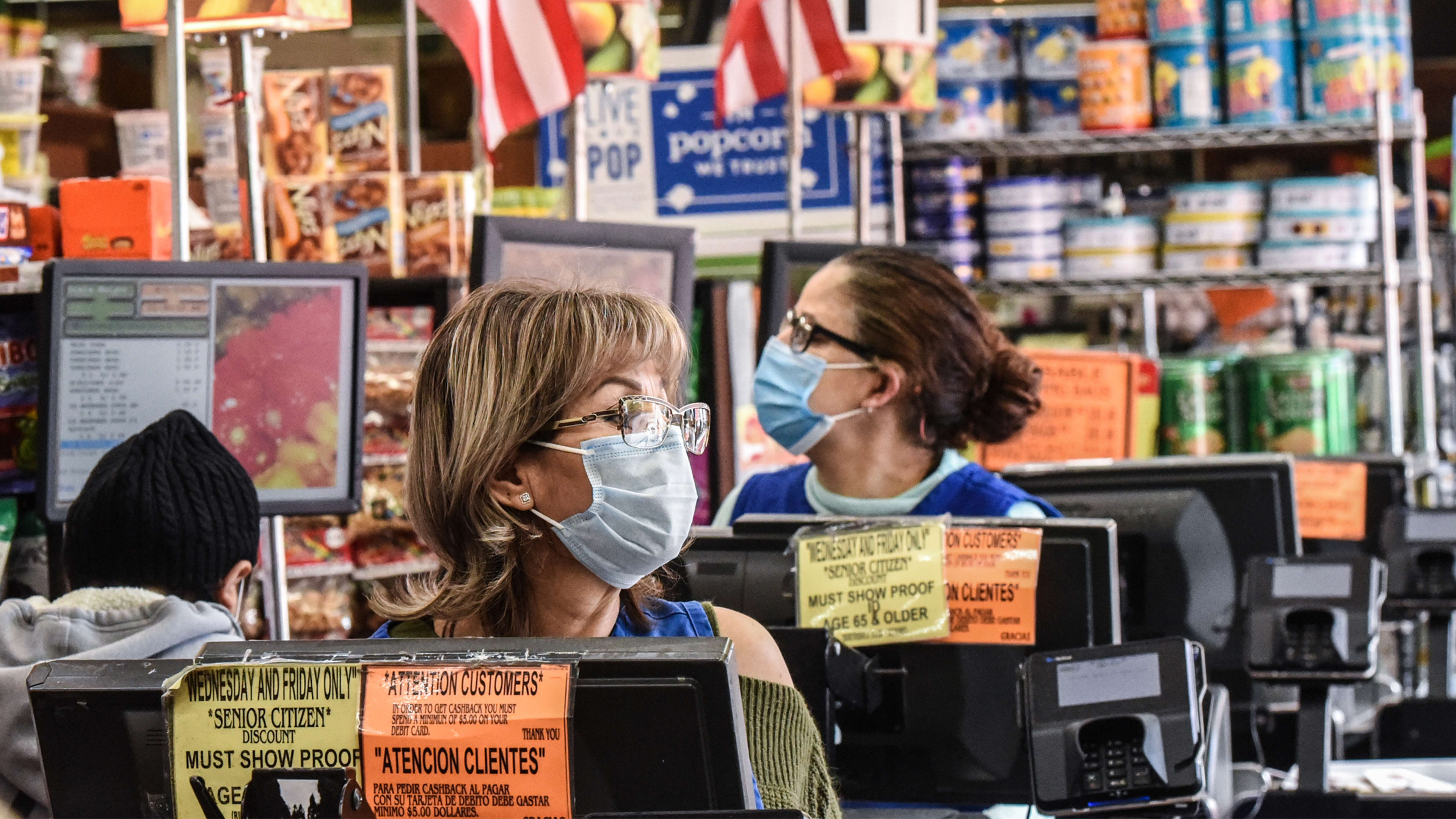Within the first week of April, a Trader Joe’s worker in Scarsdale, New York, died from COVID-19, along with two workers from a Chicago-area Walmart and an employee at a Giant supermarket in Largo, Maryland. As millions of other “essential retail” workers continue to risk their lives to stock shelves and run cash registers, they are often doing so completely exposed, without being provided gloves or masks to protect them from all the human contact they have while performing their duties. Across the country, some lawmakers are working to force the stores to provide more protection, so keeping America fed doesn’t mean workers have to get infected.
In New Jersey, where there were more than 47,000 confirmed cases of COVID-19 as of April 8, customers are now required to wear masks inside supermarkets and other essential retail stores—and stores now legally have to provide masks and gloves to workers and limit the number of people who can enter at one time. In Los Angeles, drugstores, supermarkets, restaurants, and every other essential business are now also required to provide masks to employees or reimburse them for their own purchases. And the country’s largest grocery union, United Food and Commercial Workers, is asking the CDC to make masks and gloves for grocery employees a national requirement
In San Francisco, a proposed ordinance would go farther, with a requirement for masks, gloves, hand sanitizer, and other protective supplies along with requirements that delivery companies let drivers (not just customers) choose a “no contact” delivery option, training on social distancing, paid time for delivery drivers to clean their vehicles, the option for employees to change work schedules, and no retaliation when workers exercise these rights.
“These workers are out there making sure that we all have access to food and medicine and essential goods, and we’re still hearing that far too many of them are not receiving protection, and don’t have access to no-contact delivery or paid time off,” says Matt Haney, a member of the San Francisco Board of Supervisors who proposed the new ordinance this week. “This is putting them at risk, and putting all of us at risk. It’s important that they have clear laws that protect them.”
Voluntary measures don’t go far enough, he says. “Our legislation puts in place much clearer and specific standards and protections and also protects workers from retaliation and provides for enforcement. These workers are doing a job now that is more dangerous and uncertain than it was a few weeks ago, and so the laws that protect them have to change to reflect that. And we don’t know how long this is going to go on. It could go on for months longer, so having the appropriate laws in place is critical.”
Of course, there’s a well-documented shortage of masks, which may make it harder for stores to comply. But Los Angeles’s emergency ordinance, for example, specifically says that masks worn in retail stores should be non-medical-grade cloth coverings for now—something that may change in the future as the supply of the more effective N95 masks increases. If a company doesn’t have the supplies to protect workers, Haney argues they shouldn’t be open until they can fix the problem. “Many of these companies are multi-million, multi-billion-dollar companies. They’re making a lot of money off of the work that these employees are doing. So if they’re unable to access masks or gloves or basic protections, they shouldn’t put the workers out there at risk.”
San Francisco’s ordinance will likely be voted on in the next two weeks, and Haney is hoping that it will change broader policies at some of the large delivery companies that are based in San Francisco, such as Instacart. “I definitely hope that these companies change their policies and provide for a lot of these things across the country, and that this legislation is a model for that,” he says. “But I also would recommend that cities and states actually implement their own laws, because the voluntary commitments have their limits and don’t fully protect workers.”
Recognize your brand’s excellence by applying to this year’s Brands That Matter Awards before the early-rate deadline, May 3.
